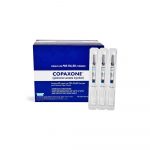How a Genetically Engineered Probiotic Fights Multiple Sclerosis & Other Autoimmune Diseases

Autoimmune diseases occur when the immune system mistakenly attacks the body’s own tissues, leading to inflammation and damage. There are over 80 different types of autoimmune diseases, and their prevalence can vary widely depending on the specific disease and geographical location.
Multiple sclerosis (MS) is considered a relatively common autoimmune disease that affects the central nervous system, leading to a wide range of symptoms including fatigue, difficulty walking, numbness or weakness in limbs, vision problems, and more. In the United States, an estimated 1 in every 1,000 individuals was believed to be affected by MS, equivalent to roughly 0.1% of the population. This incidence underscores the significance of the disease within the country’s healthcare landscape. On a global scale, it was estimated that approximately 2.8 million individuals worldwide were grappling with the challenges of living with MS.
Advances in the treatment of multiple sclerosis and various other autoimmune diseases have been significant in recent years. The development of targeted therapies that modulate the immune response and address the underlying causes of these conditions has transformed patient care. Monoclonal antibodies, for instance, have emerged as powerful tools to selectively block specific immune pathways, reducing inflammation and disease progression. Moreover, disease-modifying therapies for multiple sclerosis have become more diverse and sophisticated, offering patients a range of options based on their disease subtype and severity. These advancements have not only improved symptom management but have also slowed down disease progression, enhancing the overall quality of life for individuals living with autoimmune diseases. As research continues and our understanding of immune mechanisms deepens, newer and cheaper treatment options are beginning to emerge with the potential to change the landscape of autoimmune disease treatments and usher in even more effective and personalized therapeutic approaches. In this article we shall be looking at on a newly developed probiotic with the potential to revolutionalize the management multiple sclerosis and several other autoimmune diseases
How Genetically Engineered Probiotics Fights Multiple sclerosis and Other Autoimmune Diseases
Genetically engineered probiotics have emerged as a promising avenue for addressing autoimmune diseases, offering a novel approach that holds the potential to revolutionize treatment strategies. A team of researchers from Brigham and Women’s Hospital in Boston has recently made significant strides in this direction by crafting a probiotic designed to specifically target autoimmune responses in the brain—a crucial factor underlying conditions like multiple sclerosis and various other autoimmune disorders. This breakthrough, heralded as a more precise way to tackle brain inflammation while mitigating adverse side effects linked to conventional therapies, could pave the way for a new era in autoimmune disease management.
Central to this groundbreaking endeavor is the intricate analysis of dendritic cells. These specialized cells are distributed throughout the gastrointestinal tract and the brain, playing a pivotal role in immune system regulation. The research team’s exploration led them to uncover a biochemical pathway employed by dendritic cells in the central nervous system of mice to prevent other immune cells from erroneously attacking the body. A significant revelation came in the form of lactate, a molecule found to activate a process wherein dendritic cells effectively curtail immune system attacks. Drawing from this discovery, the researchers embarked on a genetic engineering endeavor, crafting a probiotic designed to produce lactate—a step that could potentially shift the trajectory of autoimmune disease treatment.
One of the key advantages of this genetically engineered probiotic approach lies in its potential to sustain therapeutic effects over time. Traditional drug administration often leads to fluctuations in drug concentration within the bloodstream, posing challenges in maintaining steady treatment outcomes. However, the utilization of living microbes to produce medicine within the body circumvents this limitation. As these probiotics continue to generate the active compound as required, it becomes especially pertinent in the context of chronic autoimmune disorders necessitating continuous treatment. Francisco Quintana, PhD, the lead study author and a prominent figure at Brigham and Women’s and Harvard Medical School’s Center for Neurologic Diseases, highlights the importance of this approach for lifelong conditions, where sustained treatment is paramount.
The implications of this research extend beyond the laboratory, resonating with the immense potential to reshape how autoimmune diseases are managed. By harnessing the intricate pathways of the immune system, researchers are tapping into a mechanism that offers targeted interventions with reduced collateral damage to healthy cells and tissues. While the study’s foundation rests upon experiments conducted in mice, the promising outcomes illuminate a path toward potential clinical applications for humans. As further research endeavors unfold and our understanding of the complex interplay between genetics, the microbiome, and autoimmunity deepens, genetically engineered probiotics could emerge as a game-changing therapeutic tool, providing a ray of hope for individuals grappling with the challenges posed by autoimmune diseases.





